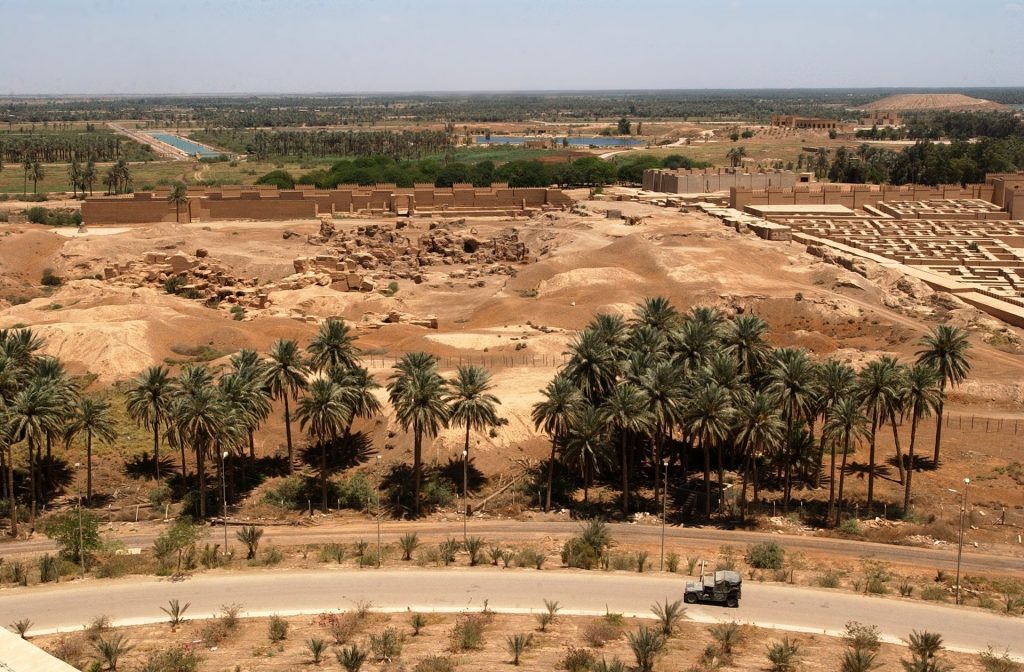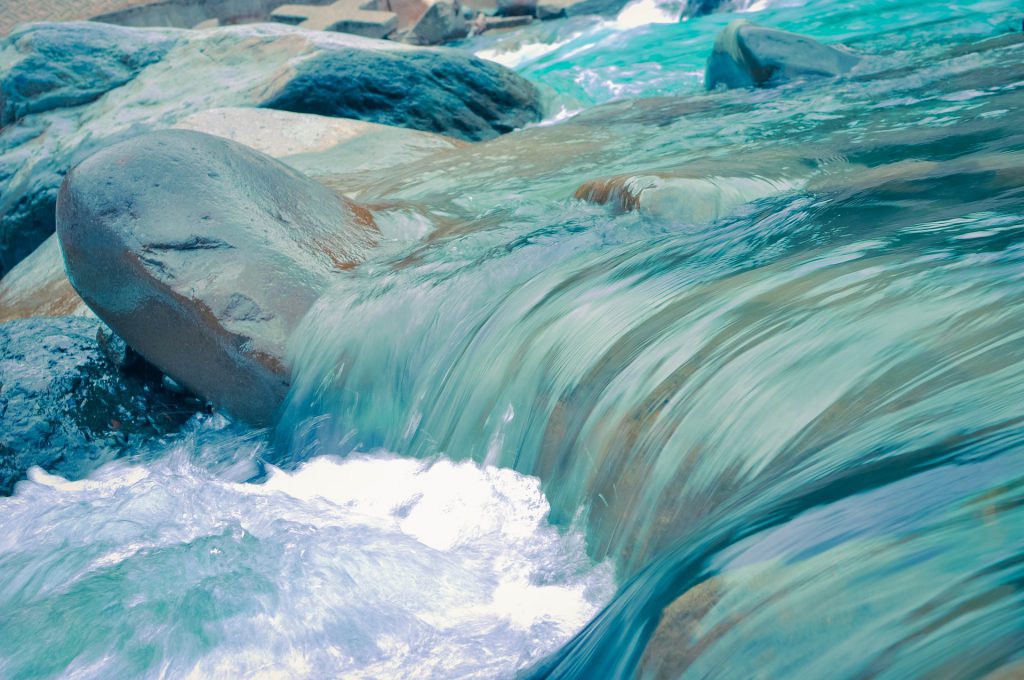Often referred to as “blue gold,” groundwater is our most vital freshwater resource. A hidden treasure beneath our feet, it serves as a crucial natural capital asset essential for meeting human water needs. Remarkably, groundwater accounts for nearly half of the water withdrawn for domestic use worldwide and supports about 43% of all irrigation, nourishing 38% of the planet’s irrigated farmland.
Less well known is that groundwater sustains a broad range of ecosystems critical to livelihoods, especially in climate frontier areas. This is because when hidden water tables meet the Earth’s surface, life can thrive even in the driest locations. Offering refuge during times of drought, groundwater acts like a water savings account that can support ecosystems with the moisture required to survive, even as precipitation dwindles Such ecosystems can range from desert springs to mountain meadows and streams, to coastal wetlands and forests. Often, they are hot spots for biological diversity worldwide supporting rare and endemic species. They also remain essential lifelines for rural communities, especially pastoralists, who depend on the vitality of these ecosystems.

Spesso definite “oro blu”, le falde acquifere sono la nostra risorsa di acqua dolce più vitale. Un tesoro nascosto sotto i nostri piedi, rappresentano un capitale naturale essenziale per soddisfare le esigenze idriche umane. Sorprendentemente, le falde acquifere rappresentano quasi la metà dell’acqua prelevata per uso domestico in tutto il mondo e supportano circa il 43% di tutta l’irrigazione, nutrendo il 38% dei terreni agricoli irrigati del pianeta.
Meno noto è che le falde acquifere sostengono un’ampia gamma di ecosistemi fondamentali per i mezzi di sussistenza, soprattutto nelle aree di frontiera climatica. Questo perché quando le falde acquifere nascoste incontrano la superficie terrestre, la vita può prosperare anche nei luoghi più aridi. Offrendo rifugio durante i periodi di siccità, le falde acquifere agiscono come un conto di risparmio idrico che può supportare gli ecosistemi con l’umidità necessaria per sopravvivere, anche quando le precipitazioni diminuiscono. Tali ecosistemi possono variare dalle sorgenti desertiche ai prati e ai corsi d’acqua di montagna, alle zone umide costiere e alle foreste. Spesso sono punti caldi per la diversità biologica in tutto il mondo che supportano specie rare ed endemiche. Rimangono inoltre un’ancora di salvezza essenziale per le comunità rurali, in particolare per i pastori, che dipendono dalla vitalità di questi ecosistemi.
Download the main report.
Download the report annexes.
Read more about the report in ARABIC, FRENCH AND SPANISH
Key messages
Groundwater is nature’s insurance, serving to protect food security, reduce poverty, and boost resilient economic growth.
- Groundwater can buffer climatic shocks, reducing agricultural yield losses resulting from drought by nearly half.
- Access to groundwater improves food security and reduces child malnutrition.
- Groundwater can protect cities against day-zero-type events.
Groundwater can play a critical role in adapting to climate change, but only if action is taken to protect it.
- Groundwater mitigates climate change by sustaining a broad range of dependent ecosystems with carbon-sequestering vegetation, lakes, and swamps.
- It protects vulnerable communities by providing access to fresh water when surface water resources are scarce.
- As groundwater is depleted, societies become more vulnerable to climate shocks.
Groundwater has been undervalued, overexploited, and mismanaged.
- The range of groundwater use is highly variable across regions, with some countries overly reliant on the resource and others not using it enough.
- In most cases, groundwater is undervalued—or not valued at all. Valuing its benefits is essential in managing its equitable use.
- Growing depletion levels reduce buffering capacity in the face of higher temperatures and more variable precipitation associated with climate change.
- Depletion, degradation, and competition for groundwater threaten its sustainability, threatening to rob future generations of this resource.
Groundwater is a common-pool resource that needs to be properly valued and carefully managed to benefit society, the economy, and the environment.
- High-level political action is needed to ensure that the private and social costs of groundwater use are aligned, and that the benefits of pumping are weighed against associated extraction costs, as well as the costs imposed on other water users.
- Well-targeted policy and subsidy reforms, supported by integrated action across sectors, can ensure that the expansion of green energy and agricultural investment do not lead to the overexploitation, degradation, and mismanagement of groundwater resources and dependent ecosystems.
- The relationship between groundwater users sharing this common resource should be carefully managed for long-term sustainability.
RELATED
Executive Summary: The Hidden Wealth of Nations : The Economics of Groundwater in Times of Climate Change
Infographic: Groundwater: The Hidden Wealth of Nations
Feature story: The Hidden Wealth of Nations: Groundwater’s Critical Role in a Changing Climate
Article in “Science”: Risks from solar-powered groundwater irrigation
Messaggi chiave
Le falde acquifere sono l’assicurazione della natura, che serve a proteggere la sicurezza alimentare, ridurre la povertà e stimolare una crescita economica resiliente.
Le falde acquifere possono tamponare gli shock climatici, riducendo di quasi la metà le perdite di resa agricola causate dalla siccità.
L’accesso alle falde acquifere migliora la sicurezza alimentare e riduce la malnutrizione infantile.
Le falde acquifere possono proteggere le città da eventi di tipo “giorno zero”.
Le falde acquifere possono svolgere un ruolo fondamentale nell’adattamento al cambiamento climatico, ma solo se si interviene per proteggerle.
Le falde acquifere mitigano il cambiamento climatico sostenendo un’ampia gamma di ecosistemi dipendenti con vegetazione, laghi e paludi che sequestrano il carbonio.
Protegge le comunità vulnerabili fornendo accesso all’acqua dolce quando le risorse idriche superficiali sono scarse.
Con l’esaurimento delle falde acquifere, le società diventano più vulnerabili agli shock climatici.
Le falde acquifere sono state sottovalutate, sfruttate eccessivamente e gestite male.
La gamma di utilizzo delle falde acquifere è altamente variabile tra le regioni, con alcuni paesi che dipendono eccessivamente dalla risorsa e altri che non la utilizzano a sufficienza. Nella maggior parte dei casi, le falde acquifere sono sottovalutate, o non lo sono affatto. Valutarne i benefici è essenziale per gestirne un uso equo.
I crescenti livelli di esaurimento riducono la capacità tampone di fronte a temperature più elevate e precipitazioni più variabili associate al cambiamento climatico.
L’esaurimento, il degrado e la competizione per le falde acquifere ne minacciano la sostenibilità, minacciando di privare le generazioni future di questa risorsa.
Le falde acquifere sono una risorsa comune che deve essere adeguatamente valutata e gestita con attenzione per apportare benefici alla società, all’economia e all’ambiente.
È necessaria un’azione politica di alto livello per garantire che i costi privati e sociali dell’uso delle falde acquifere siano allineati e che i benefici del pompaggio siano soppesati rispetto ai costi di estrazione associati, nonché ai costi imposti ad altri utilizzatori di acqua.
Riforme politiche e sussidi ben mirate, supportate da un’azione integrata tra i settori, possono garantire che l’espansione dell’energia verde e degli investimenti agricoli non porti allo sfruttamento eccessivo, al degrado e alla cattiva gestione delle risorse idriche sotterranee e degli ecosistemi dipendenti. La relazione tra gli utenti delle falde acquifere che condividono questa risorsa comune dovrebbe essere gestita attentamente per una sostenibilità a lungo termine.

